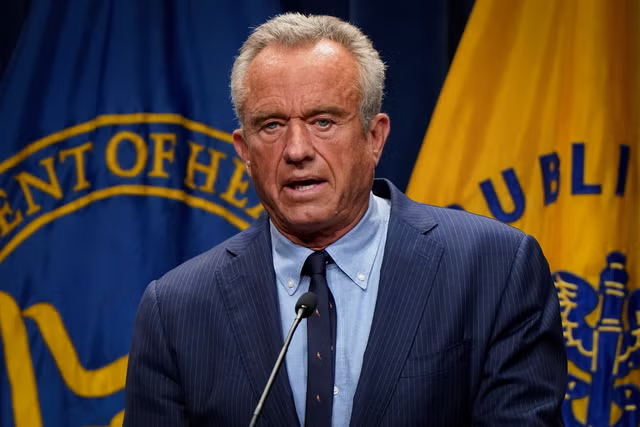Health and Human Services Secretary Robert F. Kennedy Jr. held a sobering press conference this week, responding to the CDC’s newly released autism prevalence statistics. The numbers, Kennedy said, paint a dire picture of a growing national crisis—one that has escalated far beyond the reach of coincidence or improved diagnosis.
Shocking New Data: 1 in 31 Children Now Diagnosed with Autism
According to the CDC’s latest findings, 1 in every 31 American children is now diagnosed with autism spectrum disorder (ASD)—a significant increase from just two years ago, when the rate stood at 1 in 36. For boys, the numbers are even more disturbing: 1 in 20 now receive an autism diagnosis.
Kennedy noted that the rate in California, where diagnostic tracking is considered the most robust, is even higher: 1 in 12.5 boys. He warned that this could reflect a broader national trend.
“The ASD prevalence rate in 8-year-olds is now 1 in 31. Shocking. The risk for boys is now 1 in 20—and as high as 1 in 12.5 in California,” Kennedy emphasized.
Kennedy Rejects “Epidemic Denialism”
Kennedy blasted the medical establishment and media for what he called “epidemic denialism”—a refusal to acknowledge that the rise in autism cases reflects a real, accelerating crisis.
He cited data from the CDC’s 1992 ADDM report, which recorded an autism rate of just 1 in 150 children. In less than three decades, that figure has increased nearly fivefold.
“It’s clear the rates are real. This is not better diagnosis. This is not over-reporting. This is an epidemic—one that we are causing,” Kennedy stated.
Environmental Exposure: The Elephant in the Room
A consistent theme in Kennedy’s remarks was the misdirection of autism research funding. He accused the National Institutes of Health (NIH) of disproportionately funding studies into genetic causes while largely ignoring environmental triggers—despite mounting evidence suggesting their relevance.
“Genes don’t cause epidemics. This is a preventable disease. It has to be environmental,” Kennedy insisted.
To support his position, Kennedy referenced a 1987 peer-reviewed study in North Dakota, which tracked developmental disorders across 180,000 children over 12 years. Only one case of autism was found to have been missed—disproving the theory that today’s higher numbers stem from underdiagnosis in the past.
A Call to Reinvest in Truth-Seeking Research
Kennedy outlined his commitment to reallocate funding to environmental investigations, saying answers lie in exposure studies, not in an endless genetic maze.
“We’ve been looking in the wrong place. That ends now,” he said.
A Heartbreaking Crisis
Kennedy closed the press conference with an emotional plea, drawing attention to the profound impact autism has on both children and their families.
“These are kids who will never write a poem, never go on a date, never play baseball, never use a toilet unassisted. Many were fully functional and regressed after a toxic exposure. We did this—and we can stop it.”
He concluded with a clear directive for his agency and the American people:
“We have to recognize we are doing this to our children, and we need to put an end to it.”
As the national autism rate continues its alarming rise, Kennedy’s call to action may signal a seismic shift in how the government confronts one of the most pressing and painful public health challenges of our time.

